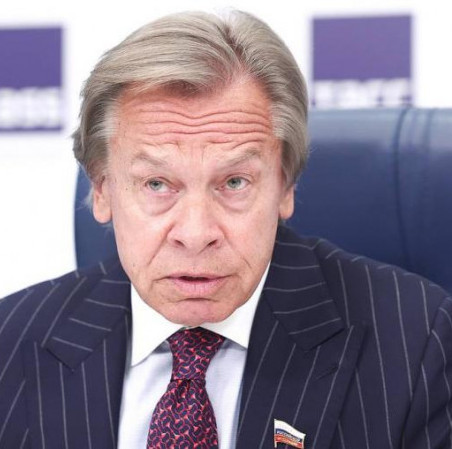
Last week Germany's SPD, the Greens and the FDP successfully completed negotiations on creating a joint government and presented a draft coalition agreement – the new government's virtual program for the next four years. So far, there is no government proper, but it will be undoubtedly formed in the nearest future, right after the Bundestag elects Social Democrat Olaf Scholz as new Chancellor, which should happen during the upcoming plenary session of the German parliament on December 6 to 10.
Washington provided a positive response. The US State Department said relations between the United States and Germany would remain incredibly close and successful in the future. The United States is Germany's key ally throughout its history, and no radical U-turns along the transatlantic track should be expected from Berlin.
The new government, in compliance with German foreign policy traditions, recognizes the transatlantic alliance as a mainstay, with NATO being an integral part of Germany's security. Berlin intends to preserve close partnership with Washington to keep stabilizing the rules-based world order, counteracting authoritarian tendencies, and cooperating in the eastern and southern regions neighboring the EU. At the same time, Germany will maintain its course towards EU's "strategic autonomy", strengthen NATO's "European pillar" and strive for a fair "load sharing" within the alliance. But the Europeans and Germans are obviously not yet ready to assume full responsibility for politics and security in Europe and the surrounding regions – they still need American support.
Moreover, the coalition agreement places a large focus on China and the Asia-Pacific region. The document defines Beijing simultaneously as a partner, competitor and systemic rival, and the relevant policy is proposed to be closely coordinated with the United States, while expanding both the German and the pan-European presence in the APR. This presence won't only be political and economic, but also military, with Berlin at least planning to send air force units and another frigate to the region.
All of these areas where Berlin plans to interact with the United States are already part of Germany's foreign policy. So this actually refers to maintaining the current course, though transatlantic relations agenda is likely to feature new key items either, primarily climate policy.
The issue permeates the new German government's entire coalition agreement and affects almost all the areas from economy and energy to foreign policy, which is also going to be climate-related now. Besides, the Greens will head the Ministry of Foreign Affairs and the Ministry of Economy to take charge of both diplomacy and foreign trade.
In the next four years, Germany intends to create a network of global climate partnerships, and an international climate club open to all the countries with single rates on CO2 emissions and single carbon border duties. And the United States is to become the key participant along with the EU, primarily due to its economic and political weight. Berlin and Brussels hope to thereby avoid trade wars that are highly likely after their own European carbon duties come into force. Apart from that, Berlin needs the Americans as allies to promote the "green agenda" at the global level and to adequately reform international norms, particularly WTO rules, which is stipulated in the new German government's program.
Apparently, it is climate policy in its entirety that will become top priority for co-leader of the German Greens Annalena Berbock after she becomes Foreign Minister. She will act in close conjunction with another party co-chairman Robert Habeck, the future head of the "superministry" of climate, economy and energy.
Berlin also intends to develop relations with the United States in the field of trade, both bilateral and global, without shifting away from climate policy, again. The new German government hopes that the "transatlantic economic space" will become an instrument for promoting new world trade regulations, including ecostandards. The coalition agreement considers international standards one of the key cooperation areas with the United States, along with geopolitics and security policy, disarmament, trade and healthcare.
At the same time, the transatlantic dialogue is supposed to be built across the board – with civil society, cities, states, congress, etc. This clause is obviously aimed to maintain ties with the United States in case of force majeure in the top tiers of American power, like Donald Trump's presidency, as the Germans see it.
Berlin will thus follow up with its course of consolidating the West and deepening partnership with the US, including issues related to confrontation with Russia and China. This course is by no means coerced but gives Germany a number of advantages. First, American security guarantees let you safely engage in the development of EU's "strategic autonomy", i.e. expanding its capabilities as regards foreign and defense policy, which is one of Berlin's top long-term political tasks. Second, through the agency of the Americans, the EU and Germany intend to achieve another strategic goal of carrying out energy transition on a global scale.


